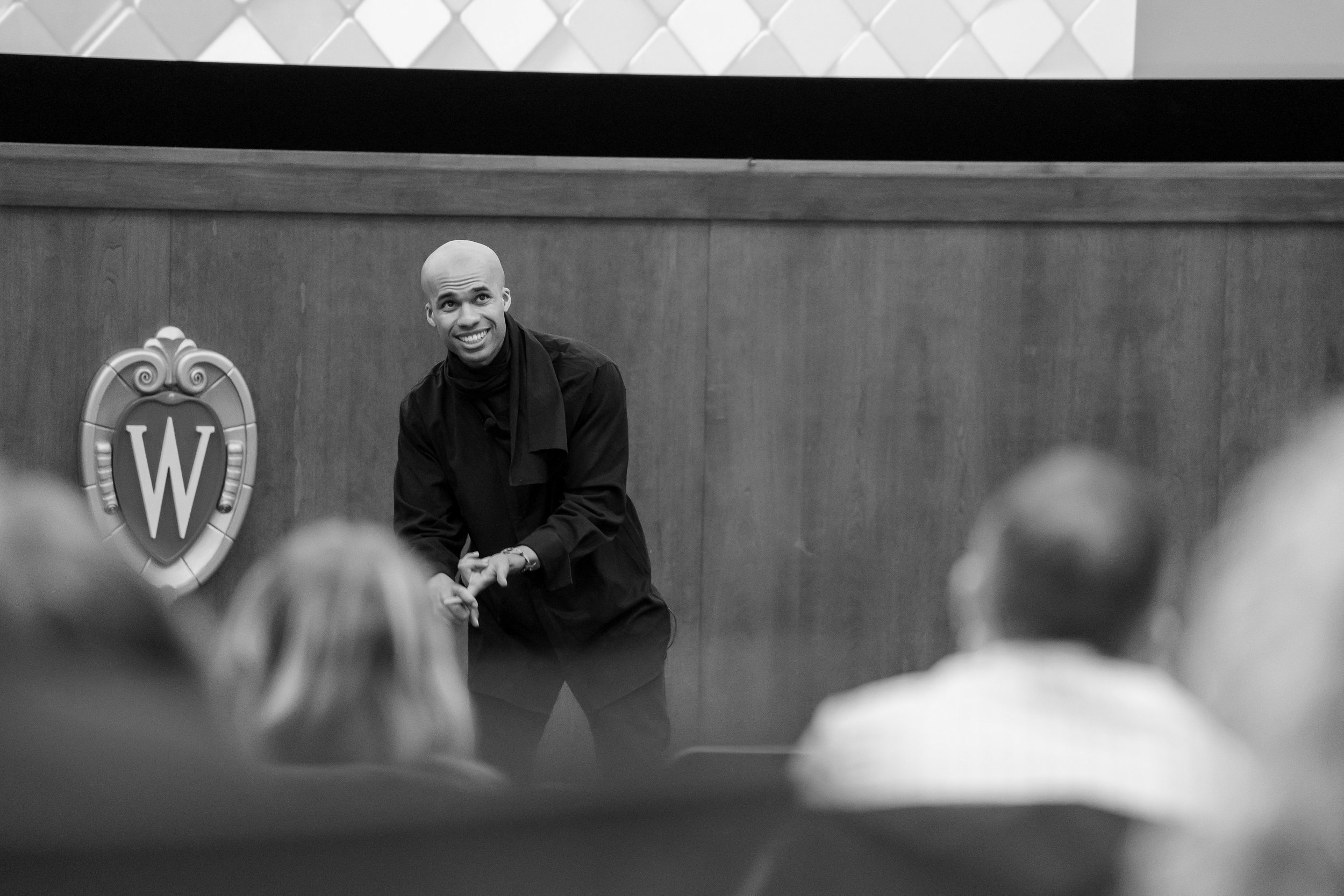
The Poet’s Keys

Poets are innovators.
For thousands of years, poets have challenged the creative status quo to redefine what words can do.
To write poetry is to seek to step out of one’s comfort zone to ask the questions, go to the places, and run the experiments that urge one’s self and one’s craft to grow.
Sort of like the challenges businesses face to stay competitive, huh?
The problem is that poets face the same barriers to that kind of innovation that business leaders do: writer’s block, perfectionism, and skepticism are all creative barriers that threaten to stunt a poet’s craft as much as they threaten to stunt our personal and organizational growth.
Over the years, I’ve discovered that there are a few tools that poets consistently turn to – whether knowingly or not – to overcome those barriers. So: how can businesses and leaders leverage The Poet’s Keys™ in their own work to unlock the innovation in our own craft and inspire our audiences to do the same?
Write by Erasing
One of the first challenges a poet faces is learning how to distinguish between the language and ideas that push their craft forward, and those that they return to simply because they feel familiar and safe; when the poet stops making this distinction, they cease to be the person dictating the evolution of their craft. As professionals, we often presume that our established practices, products and norms are essential; but how might erasing the right status quo solutions make room for more impactful ideas?
Give Reality the Benefit of the Doubt
In order to conjure colorful metaphors and rich imagery, the poet needs a healthy appetite for the absurd. They must learn to take seemingly unrelated concepts and find connections that paint them in a new light. As leaders and innovators, new grand aspirations are often met with skepticism and uncertainty - often within our industries, and sometimes even within ourselves. What excellence might we birth by suspending disbelief in outlandish aspirations and finding artful ways to bring them to life?
Aim for the Trash Can
The poet knows that their best work is not often planned, but discovered by sifting through enough lackluster ideas to stumble upon the line or idea with the potential of being crafted into creative insight. This exploration requires that the poet not only tolerates but actively seeks their "bad" ideas in order to simply keep the pen moving. As professionals, our high-intensity work environments often stop us from nurturing ideas that start off as weak. What excellence might we discover by giving our weakest ideas room to breathe and grow?
Think Inside the Box
The poet is liable to experiencing writer's block when faced with a blank page and searching for the perfect word. One way the poet overcomes this is by embracing constraints on their style, time, or topic. Rather than constricting them, these constraints can enable them to write more decisively. Innovators are constantly negotiating constraints on their budget, time, and other resources. How might we learn to leverage these constraints for greater velocity so we can produce the work that amounts to real progress?
Find Wisdom in the Weakness
The poet is inherently curious about the unexamined, flawed, and underdeveloped parts of their craft and lived experience. They recognize that exploring these places can often beget far more artistic and personal growth than leaning into the styles they're most competent at and the topics they know best. In the professional world, we are taught to lean into our strengths - both in terms of our abilities as a leader, and in terms of our products & services. What forms of growth await us if we choose to acknowledge and understand our weaknesses?







